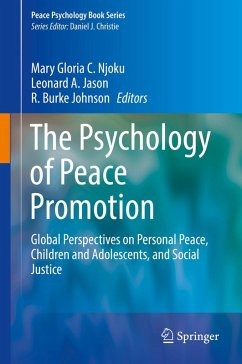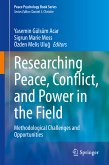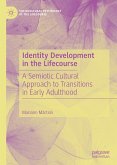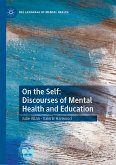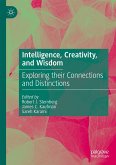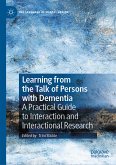This volume Psychology of Peace Promotion builds on previous volumes of peace psychology, extending its contributions by drawing from peace research and practices from five continents - Africa, Asia, Europe, North America and South America. The book discusses emerging disciplinary and inter-disciplinary theories and actions. Each chapter begins with a theoretical framework for understanding peace, followed by a critical review of peace promotion in a specific setting, and concludes with an illustration of psychological principles or theories in either a narrative format or an empirical investigation. This volume develops, as well as guides, its readers on the epistemology of promoting and sustaining peace in varied settings around the world.
Thisbook presents relevant, cutting-edge peace promotion strategies to anyone interested in promoting peace more effectively, including peace practitioners, scholars, teachers, and researchers, as well as the general reader. It presents a number of innovative approaches, illustrating their applications to specific social problems, settings and populations. In addition, this volume has much in store for both academic and practice-based scientists in the field of peace psychology, mental health professionals, administrators, educators, and graduate students from various disciplines. The goal is the promotion and sustenance of peace, using theoretically sound, yet innovative and creative approaches. As expressed by the United Nations Secretary, "peace does not occur by happenstance." Promoting and sustaining peace requires reflective, thoughtful, and targeted efforts. This book inspires its readers to develop a better understanding of peace and the means of promoting peace in a sustainable way.
Thisbook presents relevant, cutting-edge peace promotion strategies to anyone interested in promoting peace more effectively, including peace practitioners, scholars, teachers, and researchers, as well as the general reader. It presents a number of innovative approaches, illustrating their applications to specific social problems, settings and populations. In addition, this volume has much in store for both academic and practice-based scientists in the field of peace psychology, mental health professionals, administrators, educators, and graduate students from various disciplines. The goal is the promotion and sustenance of peace, using theoretically sound, yet innovative and creative approaches. As expressed by the United Nations Secretary, "peace does not occur by happenstance." Promoting and sustaining peace requires reflective, thoughtful, and targeted efforts. This book inspires its readers to develop a better understanding of peace and the means of promoting peace in a sustainable way.
Dieser Download kann aus rechtlichen Gründen nur mit Rechnungsadresse in A, B, BG, CY, CZ, D, DK, EW, E, FIN, F, GR, HR, H, IRL, I, LT, L, LR, M, NL, PL, P, R, S, SLO, SK ausgeliefert werden.

